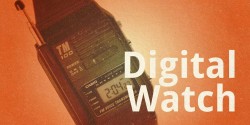Today iBiquity, the parent company behind HD Radio technology, was acquired by DTS, which is best known for creating multi-channel digital cinema sound systems. DTS is a public traded company, while the majority owners of privately held iBiquity are banks and private equity firms.
The primary reason for the $172 million deal appears to be two-fold. First, it places iBiquity in the hands of a company that specializes in digital audio. Second, DTS creates products for automotive integration. iBiquity CEO Bob Struble told Radio World that, “it’s a complementary business overlap.”
While HD radio is typically thought of as an audio product, the bigger reason why iBiquity is attractive to DTS is the technology’s ability to transmit traffic and weather data to cars over terrestrial broadcast stations’ HD signal. While mobile HD Radio reception can vary wildly with changes in terrain and a car’s position, data transmission doesn’t require constant reception. Access to this technology could give DTS an edge in creating in-dash information systems that are independent of cellular data and internet services.
Of course, this has nothing to do with actual radio as an audio medium. But as it has evolved HD Radio is less and less about actual radio, since receivers are mostly in cars and often spotty reception makes it a mediocre-at-best listening experience. My guess is that DTS clearly understands this, and so we can expect to see much more rapid development of the non-radio side of HD Radio.
NPR Podcasts Celebrate 10th Birthday
Ten years ago Apple added podcasts to its nearly-ubiquitous iTunes software, helping to push the nascent medium into the mainstream. In August of 2005 National Public Radio gave it another shove, when NPR podcasts made its debut, with a whopping 174 programs from the network and affiliate stations. Like now, most of those programs were podcast versions of broadcast programs, yet at the time it was an audacious leap into a new, untested medium.
In a blog post, NPR’s GM of sponsorship Bryan Moffett tells writer Caitlin Sanders how he remembers being pitched on podcasting by the team behind the Odeo podcasting platform, including Evan Williams, Noah Glass, Jack Dorsey and Biz Stone. Now they are better known for one of the most famous “pivots” in dot-com history, when they ditched podcasting for 140 character social messaging.
Today NPR is widely considered one of the strongest brands in podcasting, even if many of the top public radio podcasts actually come from member stations, the Public Radio Exchange or independent producers. That early bet on podcasting surely paid off for public radio in general, as podcasting has popularized the well-honed “NPR sound,” in turn providing new career avenues for public radio professionals at podcasting start-ups like Midroll Media (my employer) and Alex Blumberg’s Gimlet or at companies like Audible, Buzzfeed, and Slate, which have all made significant podcasting investments this year.
The challenge for NPR is that listeners spoiled by the bounty of audio programming now available are demanding more than just on-demand versions of syndicated programs (though, they still want those, too). While the network saw nearly immediate success with the debut of Invisibilia earlier this year, the key will be replicating the formula of launching born-digital shows that are broadcast-friendly, but don’t require the famously long gestation period most previous new NPR shows have required.
Still, I think all podcast fans owe NPR their thanks for its role in feeding this young medium.



